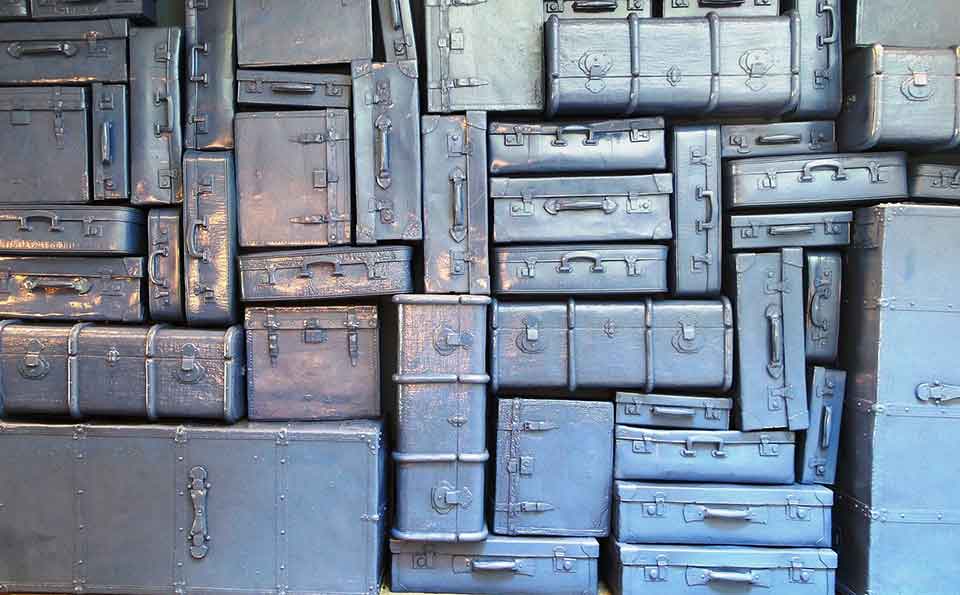Transformations: A Poem Refracted through Three Languages

Friends and Enemies
by Cia Rinne
(stockhausen’s childhood) the french were our enemies
and the english were our enemies and the italians were our friends and the spanish were the friends
and the japanese were the friends and the russians were the friends (but that changed a year later;
then the russians were enemies as well) and the finnish were friends, etc.
i didn’t know what to do with this.
(childhood friends)
the russians were our enemies
and the americans were our friends and the french were our friends and the italians were our friends
and the british were our friends
and the communists were our enemies and the capitalists were our friends
and we didn’t know what to do about it.
(adult enemies)
the americans are no longer our friends and the russians are no longer our enemies but the muslims
are our enemies
and the immigrants are our enemies and the terrorists are our enemies and the gypsies are our
enemies
and we don’t know where it all will lead.
Tranfer Poems: “Friends and Enemies” in Amharic
by Nebiy Mekonnen
“ኢጣሊያንም መጣ ፣ ሄደ ተመለሰ ፈረንሳይም ” ” ”
እንግሊዝም ” ” ”
ሚናስ ብቻ ቀረ ፣ ቤት እያፈረሰ !” (ህዝባዊ ግጥም)
ጨለማና ነገ ያዘሉትን ነገር
የለም የሰማ ሰው ፣ የለም የሚናገር በልጅነታችን ጠላት ነበር ጣልያን ” ” ” ደርቡሽ
” ” ” ግራኝ
” ዮዲት ጉዲት ቀንቷት ስንቱን አቃጠለች
ስንቱን ሰዎች ፈጀች
አርመን ወዳጅ ነበር ግሪክ ወዳጅ ነበር ዐረብ ወዳጅ ነበር
በልጅነታችን አሜሪካምኮ የልጅነት ፍቅር
ምሳሌ ነበረች
ያንኪ ይውጣ እስኪባል ፣ ሁሉን ይዛ ኖረች ለውጡ እስኪፈነዳ ተንሰራፍታ ቆየች ሩሲያም ጠላት ባዳችን ነበረች
ለውጥ ሲፈነዳ ወዳጃችን ሆነች!! ፍልምስናችን ፤ ነብስካወ ቅን ወዲያ ጊዜው እንዳመቸን ቀይረን መለኪያ አሜሪካ ወጣ ከነጓዝ ጉዝጓዙ
ሩሲያ መጣ እስከነመዘዙ
ኮሪያ አማረባት ፣ ኩባ ወዳጅ ሆነች የአሜሪካ ጠላት ጠላታችን ሆነ የአሜሪካ ጠላት ወዳጃችን ሆነ ጠላት ሆኖ ቆየ በዚያው ሰነበተ
የምናውቀው ቀረ የማናውቀው ሆነ የጣልያኖች ወዳጅ ጠላታችን ሆነ የጣልያን ጠላት ወዳጃችን ሆነ የእንግሊዞች ወዳጅ ወዳጃችን
ሆነ የፈረንሳይ ጠላት ወዳጃችን ሆነ የቱርኮችም ወዳጅ ጠላታችን ሆነ ···
ቀን አይፈጥረው የለ ፣ ዘመን የማይሰጠን ወዳጅም ጠላትም እንዳላልነው ንቀን
ቻይናም ያው ጡት አባት ፣ ዘመድ ሆኗል አሉን !
ጨለማና ነገ ያዘሉትን ነገር
በምን እንተንብይ ፣ እንዴት እንናገር ደሞ በስተርጅና ፣ ምን ይፈጠር ይኦን
ዛሬም ሚናስ(ይኖር) ፣ ቤት እሚያፈርስልን?!
(አለ) እሚያፈርስብን
(ይሆ ን)
Tranfer Poems: “Friends and Enemies” in English
by Nebiy Mekonnen
The English came, and they went back the Italians came, and they went back the French came, and
they went back
but Minas stayed, and destroyed our houses.[i]
In our childhood, the Italians were the enemies In our childhood, the French were the enemies In our
childhood, the Turkish were the enemies The Americans were the friends
And the friends of the Americans were the friends The Armenians were friends
And the Greek were friends
And the Russians were the enemies (but that changed with the Revolution, then the Russians became
friends)
The Americans came and brought their luggage The Russians left and took their luggage
Friends became enemies and enemies became friends Enemies remained enemies and friends turned
into enemies
All that we knew has come to an end The new ones set a new beginning
But there are some who are not enemies And who are not friends
The Chinese came,
And we cannot help but hope there won’t be another Minas.
Freunde und Feinde
by Nebiy Mekonnen
Die Engländer kamen und gingen wieder die Italiener kamen und gingen wieder die Franzosen kamen
und gingen wieder
Doch Minas blieb und zerstörte unsere Häuser.[ii]
Was Dunkel und Morgengrauen bergen Wird niemand erfahren
Niemand erzählen
In unserer Kindheit waren die Italiener die Feinde In unserer Kindheit waren die Franzosen die
Feinde In unserer Kindheit waren die Türken die Feinde
In unserer Kindheit war Ahmad Gragn unser Feind In unserer Kindheit war Königin Gudit unser Feind
Die Amerikaner waren die Freunde
und die Freunde der Amerikaner waren Freunde Die Armenier waren Freunde
und die Griechen waren Freunde und die Russen waren Feinde
(doch das änderte sich mit der Revolution, dann wurden die Russen zu Freunden)
Die Amerikaner kamen und brachten ihr Gepäck mit Die Amerikaner gingen und nahmen ihr Gepäck
mit Yankee, go home, sagten wir
Die Russen kamen, und die Koreaner und die Kubaner wurden zu Freunden Und dann gingen
die Russen und nahmen ihr Gepäck mit
Freunde wurden zu Feinden und Feinde wurden zu Freunden Feinde blieben Feinde und Freunde
wurden zu Feinden
Wir wissen nicht was die kommenden Tage bringen werden Wir wissen nicht was uns bevorsteht
Nichts ist so wie es war
die Neuen verordnen einen Neubeginn
Doch es gibt auch jene, die keine Feinde sind und auch keine Freunde
Es kamen die Chinesen.
Dunkel und Morgengrauen sind nicht vorhersehbar Wir wissen nicht was die Dunkelheit birgt
und können nur hoffen, dass am Ende kein neuer Minas auftaucht.
Translation from the English
By Cia Rinne
[i] Popular verse in Ethiopia. Minas Kherbekian was the chief architect of the municipality of Addis Ababa who stayed throughout the different colonial period and was responsible for the restructuring of the city.
[ii] Bekannter Vers in Äthiopien. Minas Kherbekian, Chefarchitekt von Addis Abeba, der durch die verschiedenen kolonialen Phasen hindurch blieb und für die Neugestaltung der Stadt verantwortlich war.









